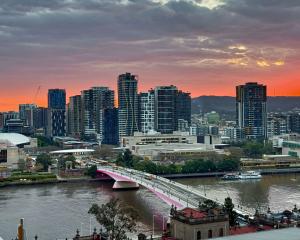Have backpack, will travel.
But just who is wearing those backpacks is one of the surprising changes in the New Zealand backpacking industry.
A decline in the number of British backpackers has been offset by an increasing number of New Zealanders, baby boomers and independent Chinese travellers choosing to backpack around the country, chairman of the backpacker advocacy group nzbackpack.com, Daniel Shields, of Christchurch, said.
New Zealand was no longer the "pioneer backpacker" destination it was 15 years ago, that title was now shared among out-of-the-way countries in South America, Africa and Eastern Europe, but it was the best backpacker destination, he said.
"There is no doubt we have the best tourism infrastructure for backpackers in the world."
He said the prevalence of good quality, but cheap, accommodation, along with a range of transport options and the obvious attraction of New Zealand still made backpacking a popular choice for tourists.
For a standard dorm bed, backpackers could expect to pay from $25, and up to $100 for a room featuring an en suite, promoted as a "flashpacker" by some in the sector.
"Communal living is still a drawcard but the introduction of en suites is a response to demand," Mr Shields, the marketing and sales manager for the Youth Hostel Association, said.
Prices remained largely steady or, in the case of the Youth Hostel Association, even increased last year to offset any decline in numbers, a stark comparison to the hotel industry, which had an aggressive pricing war to improve occupancy rates, he said.
For too long the sector had been a loose smattering of small businesses employing only a handful of people, and did not get the marketing support compared with high-profile providers, such as the cruise ship and luxury accommodation sector.
But that is all about to change.
The more than 450 backpacker accommodation providers are being supported by a Tourism New Zealand marketing campaign, which is targeting the youth and backpacker market with the "Go All The Way" campaign.
The campaign is timely, considering the changing face of the sector, with fewer British backpackers, from around 30% to 20% of the overall total, coming to New Zealand.
Offsetting their numbers were Scandinavians, New Zealanders, babyboomers, and emerging markets such as the Chinese, Thai and Indonesians.
The global recession had also forced a change on backpacker demographics, with a move from people who had finished high school replaced by those in their mid-20s, many of whom had been made redundant.
The babyboomers tended to come from Australia, the United Kingdom, Germany and the United States, and had often travelled in New Zealand in their youth.
"They have knowledge of youth hosteling, and stay in cheaper places so they can spend money on adventure travelling."
Auckland University of Technology Tourism Research Institute director Prof Simon Milne, said backpackers were a subset of "free and independent travellers", which also included cyclists, and those touring in campervans.
Traditionally, backpackers were viewed as young, hard-drinking travellers who did things on the cheap, but this was no longer the case.
Backpackers today were technologically savvy, environmentally conscious, and often travelled cheap so they could spend money on adventure tourism in places like Queenstown.
Concerns for the industry include a lack of Chinese language speakers to cater for the increasing number of Chinese independent travellers, questioning of New Zealand's "100% Pure" image, and access and disability issues for the growing babyboomer market.
`One former British backpacker who has returned is Simon Abbott, who travelled to New Zealand in 1995, and now owns the Old Bones Backpackers, between Oamaru and Kakanui.
He said the big changes since he was a backpacker were that people expected more for their money and the increasing numbers of Chinese backpackers exploring New Zealand.
"They are great guests and we would do well to encourage more to come," he said.
Another former British backpacker to own a hostel is Steve Newman, of the Mountain View Backpackers, in Wanaka.
"I backpacked around here 20 years ago, and was skiing in Queenstown for a winter and it was a dream to have my own backpackers."
Since buying the business 18 months ago he had noticed an increase in the number of older backpackers "who like mixing it up with the younger ones".
Alexandra Backpackers owner Murray Poole said his business tended to cater for those backpackers wanting to supplement their trip with a week of fruit-picking.
"I make 80% of my money over December/January . . . it basically goes nuts and then drops off."
Central Backpackers Dunedin owner/operator Richard Hancox said while there appeared to be a decline in international travellers, particularly from the United Kingdom and Germany, there was an increase in the number of New Zealanders opting to stay at backpackers.
Catlins Blowhole Backpackers owner Suzanne Carruth, of Owaka, said it was a different type of backpacker "who braves the elements and comes here", with a high number of German and French tourists to date.
The numbers
• 183,063 backpackers visited New Zealand in the year to September 2009, up 6% from the previous year.
• Visitors down 1.8% to 2.41 million in the year to September 2009.
• Backpackers spent an estimated $578 million for the year ending June, a 14% increase from the previous year.
• Otago recorded 78,000 backpacker guest nights in March 2009, the best month in the five-year period to October 2009.
• In the the same month, Otago hotels recorded 148,000 and motels 108,000 guest nights.
• Nationally, the highest number of backpacker guests nights was in March 2008, when the sector recorded 518,000 - the first time it had reached the half-million mark, a feat the sector achieved again in January and March 2009.
Source: Statistics New Zealand











